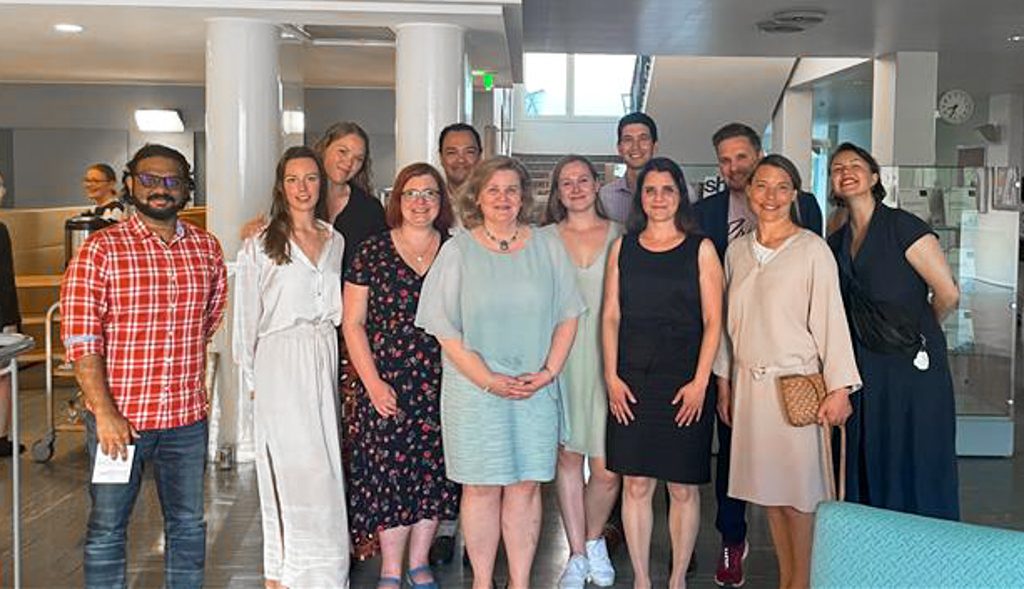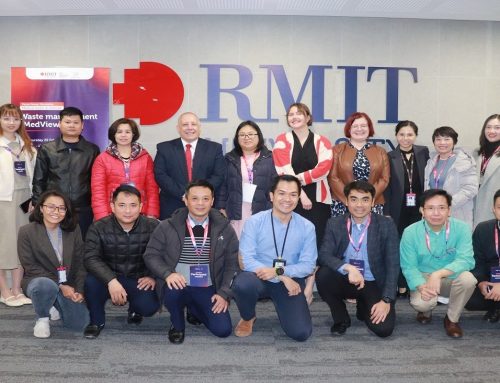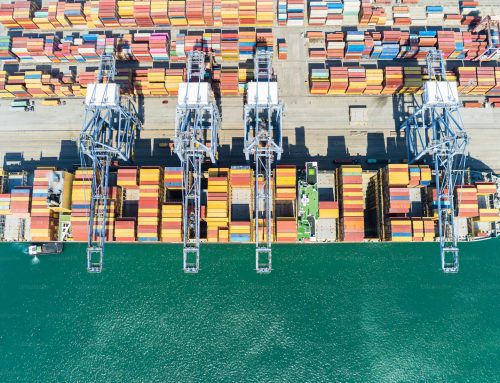24.7.2022
By Dr. Sarah Schiffling
Reflections from Dr. Sarah Schiffling after her visit as a guest researcher with the HUMLOG Institute. Dr. Schiffling spent spring 2022 in Helsinki, working, ideating, and collaborating with HUMLOG Institute researchers, PhD students, and professors.

Supply chains are like the wifi – nobody thinks about them until there is a problem. What initially drew me to humanitarian logistics was that in this area thinking about supply chains is not optional, but often a matter of life and death, a way to support communities and individuals affected by crises.
Over the past two years, the role of supply chains in everyday life has become much more visible for many around the world. It started with supermarkets running out of toilet paper and other essentials amidst panic buying in early 2020. In 2021, the focus shifted to COVID-19 vaccine supply chains. Who was or wasn’t shipping vaccines to others and how uneven the global distribution was became big topics. The Evergiven blocking the Suez canal made half the world maritime transport experts, at least in meme format. And then came the shortages… All over the media, explainers popped up of why a shortage of microchips meant that demand for second-hand cars was soaring. Most recently, the USA ran out of baby food, and this summer swimming season might well be marred by a shortage of pool chemicals.
None of these issues are unusual in humanitarian logistics. Blocked transport routes are common in many locations, as is having to manage a lack of essential supplies. The solutions being proposed can also be reminiscent of humanitarian logistics practices. Re-shoring and near-shoring are now frequently being mentioned as remedies to all the tangles experienced in global supply chains. In humanitarian logistics, we have long discussed localisation, buying supplies as close to operations as possible. Now similar lessons are being learned across various sectors.
During my stay in Helsinki, I wrote two articles explaining how recent lockdowns in China affect supply chains and why food supply chains have become highly political in light of the war in Ukraine. I have increasingly used my expertise to write for general audiences over the past two years. As part of a seminar, I was able to share my experience of writing articles and working with the media more broadly with my colleagues at Hanken.
My stay at the HUMLOG institute was originally supposed to happen in summer 2020, but pandemic-related delays meant I finally arrived in May 2022. The parameters had changed significantly. The originally planned field research trip to Eastern Ukraine as part of the Cash and/or Carry project was no longer possible. Instead, I have been working on a paper on civil-military interactions in the COVID-19 response across Europe.
The existing focus on Ukraine in the Cash and/or Carry project has gained even more importance. With my colleagues, I’m now discussing a paper on cash aid specifically focussing on refugees from Ukraine. To me, this is emblematic of the current situation. Much has changed between the pandemic, its consequences, and the war in Ukraine. But the themes we have been working on remain the same, truly showcasing their relevance.
At times, this can be frustrating. With practitioners and academics, I find myself once again discussing unsolicited donations, the items mostly well-meaning people send around the world to hopefully reach those in need, not realising that there are much more effective ways of helping. What may seem obvious to us, working in this area, might not be a message that reaches everyone. After doing a radio interview on this topic, I got enthusiastic feedback from people who had learned something completely new to them, with one community group organising an impromptu fundraiser, convinced that indeed “cash is best”. Clearly, there is more work to be done. We’ve been tossing around some ideas for a research project!
As I return to the UK where I work as a Senior Lecturer in Supply Chain Management at Liverpool John Moores University, I take with me many new ideas based on the conversations with my HUMLOG colleagues. But most importantly, I leave with wonderful new connections that developed over cups of tea (when I couldn’t ignore my British programming) and coffee (when the Finnish influence was growing stronger). In a world that is increasingly realising the complexities, the threats, but also the opportunities of logistics and supply chain management, I leave with optimism that such excellent minds are pondering these crucial issues with academic rigour and practical relevance.
Dr. Sarah Schiffling is a Senior Lecturer in Supply Chain Management at Liverpool John Moores University, UK, and an International Research Fellow with the HUMLOG Institute. Dr. Schiffling has become a well-known voice in the humanitarian response community through her various appearances on talk shows, radio shows, and television where she shares much of the valuable research she pursues on her projects.




